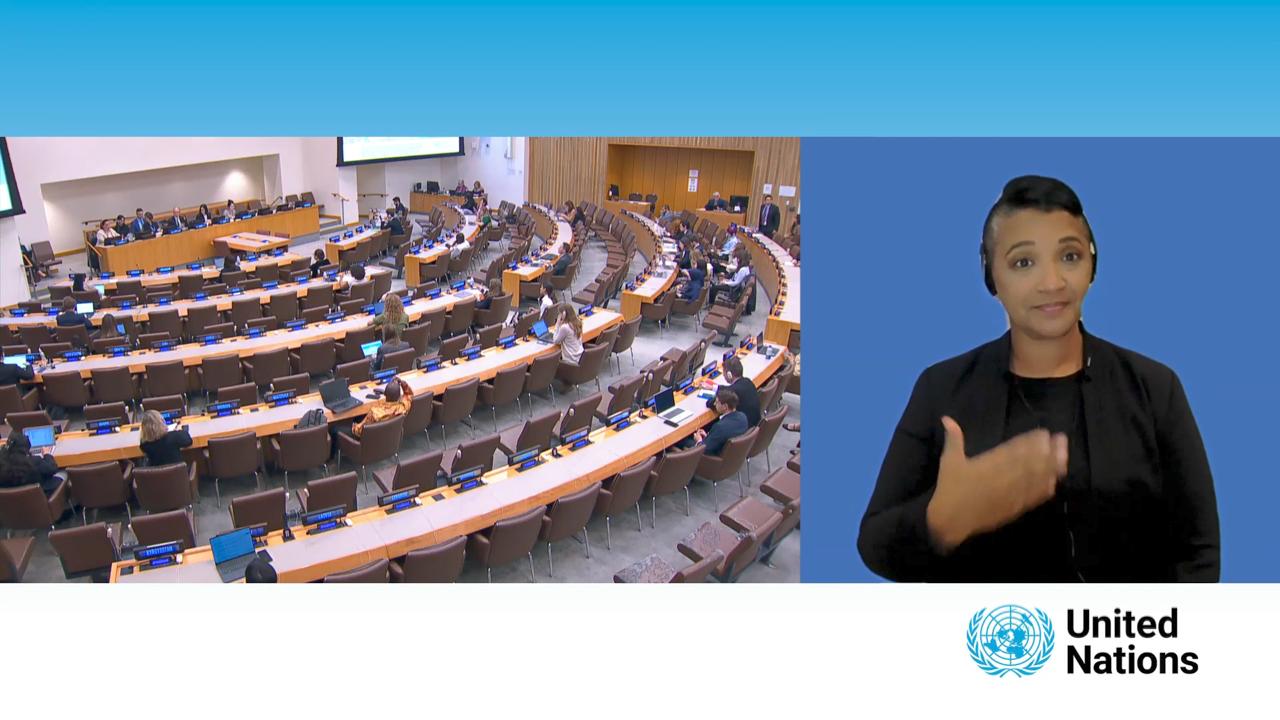NEW YORK – Urgent action is needed to ensure the meaningful participation of persons with disabilities in the review and follow-up processes of the 2030 Agenda for Sustainable Development, a UN expert said today.
Heba Hagrass, Special Rapporteur on the rights of persons with disabilities, said that despite the global commitment to "leave no one behind", persons with disabilities remain largely excluded from sustainable development efforts and their review, even though they are among the most disproportionately affected by ongoing global challenges such as growing inequalities, conflicts, climate change, and lasting impacts of the COVID-19 pandemic.
"The meaningful participation of persons with disabilities in policy discussions that shape their future is not only a moral imperative but a legal obligation under the Convention on the Rights of Persons with Disabilities, Hagrass said, presenting her first report to the UN General Assembly. “Their voices must be heard if we are to make concrete progress toward achieving the 2030 Agenda for 1.3 billion persons with disabilities around the world,” she said.
The report outlines major gaps in guaranteeing disability-inclusive follow-up and review of the 2030 Agenda, including limited consultation of persons with disabilities in national SDG review processes.

“Persistent barriers in collecting disability-disaggregated data, which is crucial for designing inclusive policies, accessibility constraints and lack of capacity-building for representative organisations of persons with disabilities are hindering their full participation in follow-up processes at the national, regional and international levels,” the expert said.
In her report, the Special Rapporteur provides recommendations to strengthen inclusion, including establishing accessible consultation platforms, improving data collection, providing independent funding for organisations of persons with disabilities, and integrating them into national and
Hagrass also urged the UN to accelerate the implementation of its Disability Inclusion Strategy, particularly at the country level, by supporting States to make their SDG reviews inclusive to ensure that persons with disabilities are not left behind.
As the world enters a critical period in the lead-up to 2030, Hagrass called on Member States to ensure that the rights of persons with disabilities are prioritised in all global development efforts, and that they are meaningfully included and consulted in related policy discussions.
Heba Hagrass is the Special Rapporteur on the rights of persons with disabilities
The Special Rapporteurs are part of what is known as the Special Procedures of the Human Rights Council. Comprising the largest body of independent experts in the UN Human Rights system, Special Procedures is the general name of the Council's independent fact-finding and monitoring mechanisms that address either specific country situations or thematic issues in all parts of the world. Special Procedures experts work on a voluntary basis; they are not UN staff and do not receive a salary for their work. They are independent from any government or organization and serve in their individual capacity.


